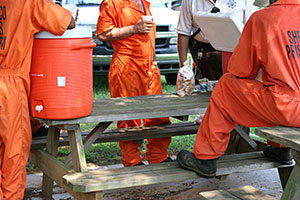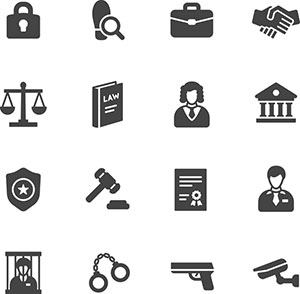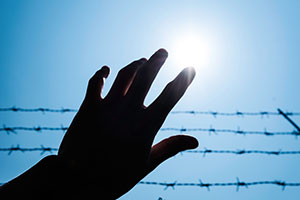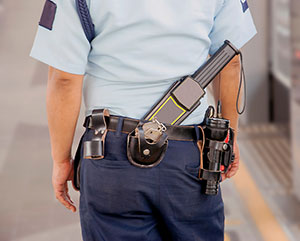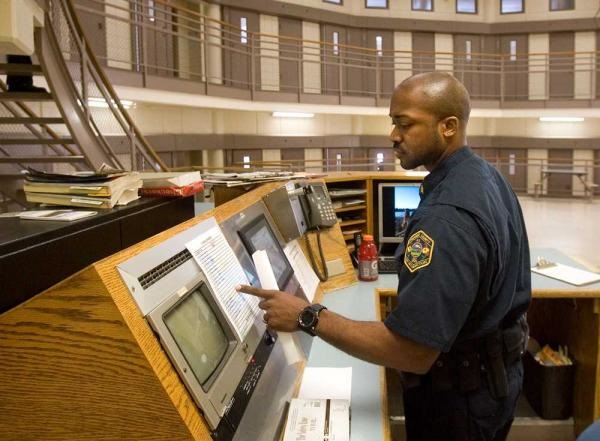Candid Advice about Your First Year as a Peace Officer

You have spent time soul-searching and made a decision to launch a career in law enforcement. If your thought process has been honest and empirical, you are on your way to a promising and challenging goal...perhaps for life.
Per U.S. Census Bureau statistics, the U.S. population of over 319 million is essentially served by a seemingly meager 900,000 law enforcement officers. As you can see, it is difficult to attain the rite of passage as a sworn peace officer. There is no denying the path to attaining status as a law enforcement officer is demanding. The requisite physical, emotional, and social investments are significant. With that said, the rite of passage is well-deserved...assuming you make the grade. The academy consists of mere stepping stones, challenging your mettle and resiliency. While there are many experiences to be gleaned while serving in the capacity as a law enforcement cadet, the fundamentals are being forged. The mortar solidifying your chosen profession is being poured; the principles of a peace officer's mission are being cultivated.
In the training facility, a cadet will be barked at, criticized, and "tested," ALOT. Cadets are taught to cut a professional stature. Cussing and demanding physical tasks are commonplace. These things toughen the skin- a benefit against society's onslaught. Formality is expected. Lacking manners? You better devour materials to be up to snuff. "Yes sir" and "No, ma'm" responses are expected and ritualized. Makes sense, since these salutations must be used when working in a professional setting.
As with any profession's "apprentice" stage, a law enforcement cadet is wise to listen well to instructions being given and suppress any know-it-all notions. Astute attention is paramount in terms of role models and what they have to offer. An attentive student can reap scores of wisdom. With that said, law enforcement cadets must be diligent with regard to moral turpitude, ethical behavior, and constructive social interactions. After all, merely donning a peace officer's uniform does not make the man/woman, stellar character traits do. Unshakable integrity becomes your logo-type. These attributes are chronically tested at the academy.
Academics are Crucial
Do your homework! Studying the laws is only part of the equation; knowing how and when to appropriately apply them is imperative. Scour judicial reviews, especially those involving law enforcement roles. Stay abreast of legal precedents. Pay close attention to rulings involving criminal justice, and impetus for court decisions. Ask questions of senior officers; don't be shy. Know your stuff!
Given that peace officers come in contact with all walks of life, it is prudent to be aware of current/world events. Refrain from being myopic in scope; be receptive to the plights of others. Do not be hesitant to consider all the resources at your disposal. You can make a difference, providing you try.
"Every situation has a lesson. Adopt details from others' mistakes--including yours--because those errors can teach not only what to do, but also what NOT to do!"
Avoid Self-Centeredness
Participate in a law enforcement agency's community involvement projects. This affords a wonderful, first-hand exposure to the public. Yes, those to whom you swore an oath will justifiably expect your best. Deliver! Interact and reciprocate. Disallow the us-versus-them syndrome from creeping in. That is generally spewed by haters. Some citizens' perspectives may surprise you, perhaps even alter your thought process, and effect change.
Keep your ego in-check. Albeit inherent in all humans, ego can easily trip us up if we fail to recognize its influence. Taking this career lightly, perhaps salt-and-peppered with egotistical aire, is a disservice to the public...and perilous for you. Be serious; stay serious. You will be entrusted to handle myriad life-threatening circumstances.
Authenticity in maintaining order is crucial; thrill-seeking and grandstanding will bring collateral damage. Do not be the catalyst for catastrophe by living the Hollywood version of the criminal justice system. Maintain a steadfast preponderance of professional conviction in your career as a peace officer. Confront fear, do not avoid it!
Demonstrate Compassion and Gratitude
Law enforcement work can be thrilling, rewarding, and fulfilling. Proverbially, law enforcement actions save lives, including those of perpetrators. Be compassionate instead of superior or narcissistic. Be humbled by gratitude. Exercise grace and humility, professionally. Peace officers are always scrutinized; let your actions speak instead of words. Do far more listening than talking. Respect and be grateful to be in a position to help.
Speaking of gratitude, the concept of self-deferred gratification goes far in law enforcement roles. Success stories abound. The virtues of helping others ought to be cherished, not trashed by arrogance. Remember, there will always be public service needs. Celebration distracts and weakens your guard; revel when off-duty.
Develop "Thick Skin"
Peace officers are subjected to an endless supply of toxic people. Agitants in society seek to undermine the role of law enforcement...and will go through significant measures to that end. It is vital for a law enforcer to maintain a "thick skin," a quasi-galvanized exterior, so that such idiosyncrasies roll off your back like water on wax. Easily succumbing to verbal taunts indicates you may be ultra-sensitive. Not necessarily bad, only ill-suited for the profession.
Habits, as in destructive traits, bring disrepute to your professional role (and agency). These must cease to exist. There will be stressors. How you deal with them signifies your true persona. Imbibing excessively has destroyed many a law enforcement career. Such flaws will impede your ability to perform your duty, and potentially cause harm or death to yourself or another.
Your reputation--and your department's--stems from professionalism, compliance with rules and regulations (even if you disagree with some of them), objectivity, and service delivery. Consistent and impartial application of laws and enforcement authority remains paramount. No special favors should ever be considered.
Listen Carefully and Diligently
Pay acute attention to senior officers, in how they conduct themselves and how they interact with people. Heed the advice of field training officers. Do as you are instructed by colleagues who possess training credentials/titles. No matter how stern and rigid they may be, they serve as a fountain of experience from which you can adopt usable skills/traits. They also score your performance. Grow and mature from their remarks about your performance. Do not harbor resentment if you receive average performance scores. Remedy the measures!
Meld your various trainers' and senior officers' attributes together, then put into practice all you have been taught. Don't clone any officers. Be your unique self. Implement the instruction you have been provided and be judicious with techniques you learned in academy and street-training modules. Generate a sound reputation...and pay it forward. You, too, may be in a position to train/mold cadets some day.
Know Yourself
Take a realistic view of yourself and exercise your unique skill sets and abilities. Be honest with yourself; analyze your advantages and limitations. Discern your strengths and weaknesses. Chuck the fantasy-filled, thrill-seeking glorification demonstrated by Hollywood productions. Only then can you consciously fulfill the role of peace officer...and confidence will follow and flow.
After all, a confident peace officer is what the public expects. The quicker you accept the vigorous character traits inherent in a law enforcement officer, the more rapidly you will grow out of the cadet status and onto higher plateaus.



